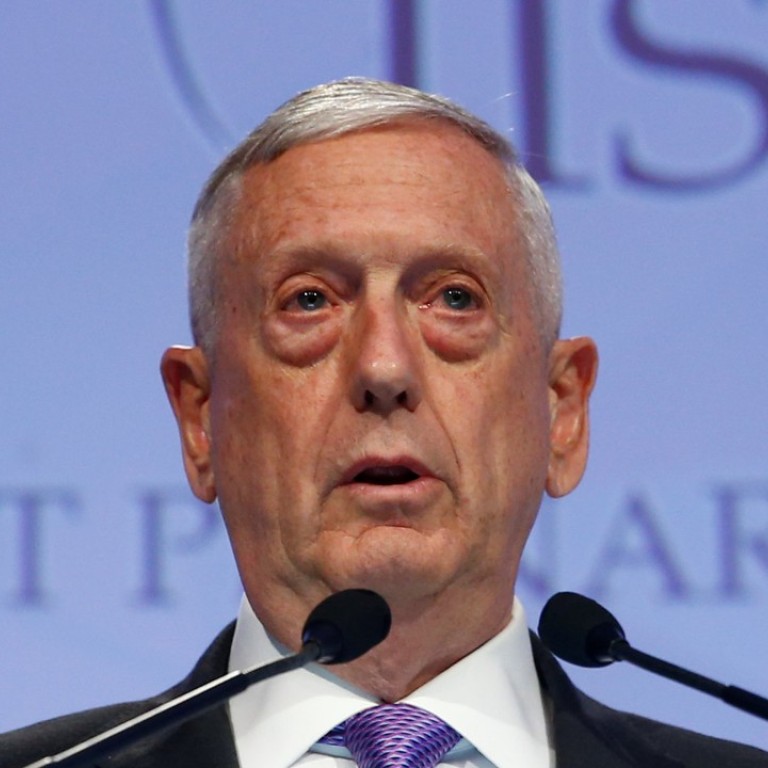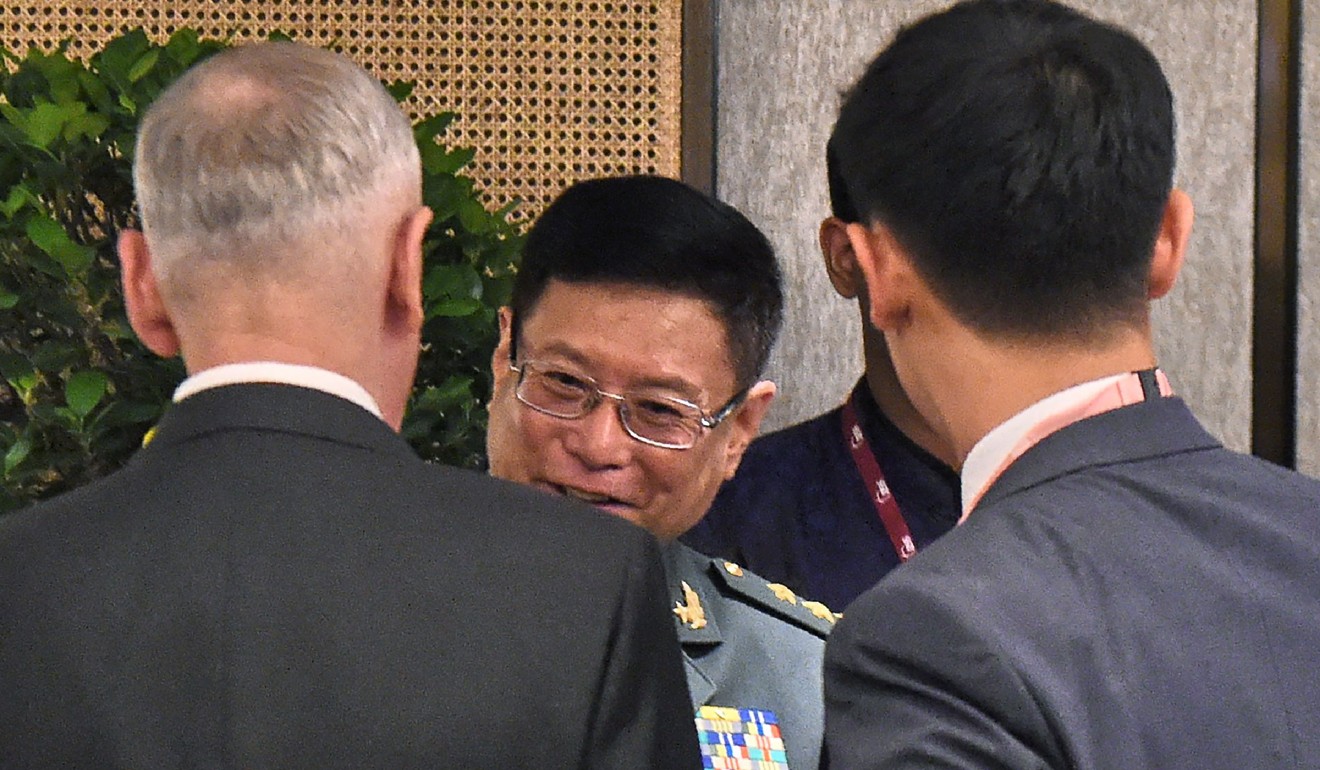
Mattis outrages Beijing with explicit commitment to defend Taiwan
US remains committed to defence of the island but also abides by the one-China policy, US defence chief says at Shangri-La Dialogue
China’s military delegation to a security summit in Singapore blasted the United States on Saturday for underscoring Washington’s responsibility to defend Taiwan.
Defence ministers from the US, Japan and Australia also said they opposed China’s land reclamation in the South China Sea and condemned Pyongyang’s nuclear proliferation push.
US Secretary of Defence James Mattis, as well as his Japanese and Australian counterparts Tomomi Inada and Marise Payne, all highlighted their support for last year’s ruling by the Permanent Court of Arbitration in The Hague that invalidated China’s claim to sovereignty over large swathes of the South China Sea. They said they opposed China’s “militarisation move” in the disputed waters through land reclamation and weapons deployment on the artificial islands because it has unilaterally changed the security “status quo” in the region.
Addressing the Shangri-La Dialogue, Mattis said the US would continue to abide by its commitment to Taiwan, the first time the island has been mentioned by a US delegation to the forum since its inception in 2002.
“The Department of Defence remains steadfastly committed to working with Taiwan and with its democratic government to provide it the defence articles necessary, consistent with the obligations set out in the Taiwan Relations Act, because we stand for the peaceful resolution of any issues in a manner acceptable to the people on both sides of the Taiwan Strait,” Mattis said, adding later that the US was committed to the one-China policy.
Lieutenant General He Lei, vice-president of the PLA Academy of Military Science and the head of the Chinese delegation, said the US should not play up the Taiwan Relations Act. “Mattis should not only mention the Taiwan Relations Act, but should also touch on the Three Joint Communiqués [with Beijing],” He said on the sidelines of the forum. He also underlined Beijing’s opposition to US arms sales to Taiwan and official contact with Taipei.

Enacted in 1979, the Taiwan Relations Act requires the US to go to Taiwan’s defence if the island comes under military threat from the mainland.
Washington and Beijing also signed three statements between 1972 and 1982, with the US acknowledging that there is “one China” across the Taiwan Strait.
Another member of the Chinese delegation, Senior Colonel Zhao Xiaozhuo, said Mattis sent a wrong message to Taiwan’s pro-independence groups during an ebb in cross-strait ties. “[Mattis’ remark] will encourage the independence-leaning movement in Taiwan, which will harm the peaceful development of the cross-strait relationship,” he said.
Relations between Beijing and Taipei have been strained since Taiwanese President Tsai Ing-wen and her independence-leaning Democratic Progressive Party came to power last year and refused to recognise the “1992 consensus”, an understanding that there is only “one China”, but each side has its own interpretation of what constitutes “China”.
Taiwanese delegate and former defence minister Andrew Yang Nien-Dzu, said Mattis’ remark had been a strong message to both Beijing and Taipei.
“Washington wants to make clear that its commitment to maintain the stability of the Asia-Pacific region by strengthening alliance partnerships shouldn’t exclude Taiwan,” Yang said, stressing that the Taiwan issue is also a key part of the Sino-US relationship under the “one-China framework”.
But he also said “Tsai’s administration should avoid over-interpreting Mattis’ remark … to [avoid] causing a misunderstanding that Washington and Taipei had colluded to put Beijing in an awkward position”.
Mattis also said the US was encouraged by China’s efforts to restrain North Korea but the US would not accept Beijing’s militarisation of islands in the South China Sea.
“The Trump administration is encouraged by China’s renewed commitment to work with the international community towards denuclearisation,” Mattis said. “Ultimately, we believe China will come to recognise North Korea as a strategic liability, not an asset.”
Additional reporting by US correspondent Robert Delaney and Reuters

